
Memory
The borders / walls, or areas that in some way preserve the purity of the nation, or "peace and spirit of the nation" ( I put this terms in quotes because in each of them certainly a lot of lives were lost and a lot of aggression conducted) were important for my PhD doctoral research.
The walls that I have chosen are due to their historical significance - the institutions in the open (formerly active, now passive places). Instead of fascination with the place itself (matter), I am fascinated by the historical and political context of the place.
It is also very important the impact of people on the place - what this place meant, and not the material remains (membrane of truth - what is true now, it may not be true for the next generation).
I question how the wall through the history loses the true significance as a border or barrier. A wall becomes almost abstract phenomenon, without prior sense within the new redecorated space.
Visual stains (frottage on paper) suggest that it is something "taken" from the matrix, "the record of the real surface". White papers are used like the white flag in proces of negotiation, in relation with the border - the wall.
Some walls that I have chosen are tourist attraction (phase of admiration - The Great Wall of China, The Berlin Wall), while the other walls have completely forbidden access ("the skeleton of one period in history" - The Atlantic Wall - Netherlands), and one wall is 600 years old, but only recently descovered (The Seoul City Wall). It got me thinking about the access to information and the impression of the past to the present.
By transmitting touch to the paper, I do not to transmit the words, but something much more - the real memory of the place that becomes abstract, like the history is abstract in our reality, because such a reality of the past we can never experience.

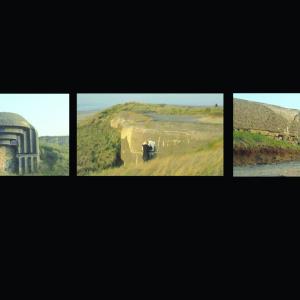
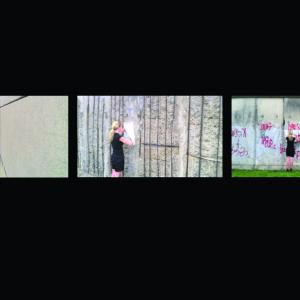


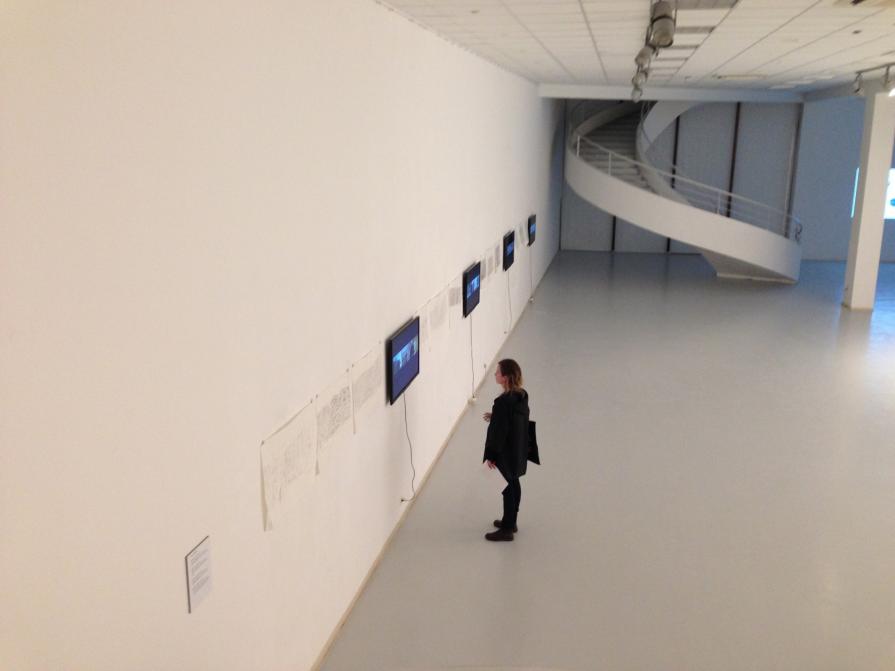
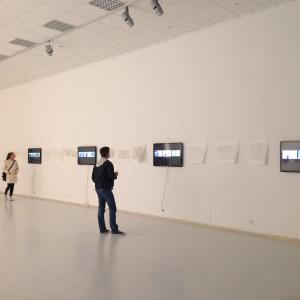
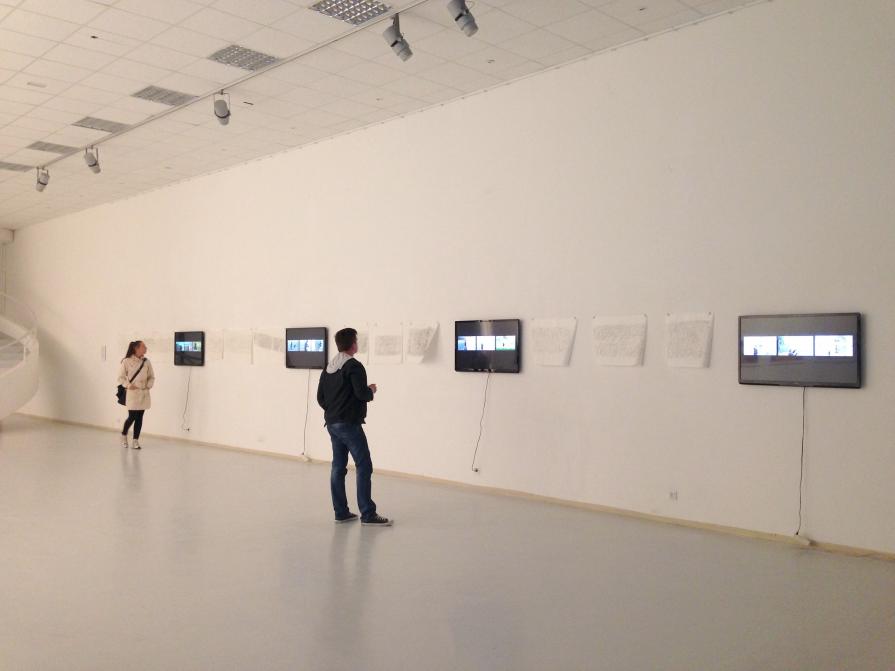
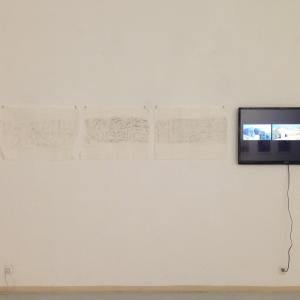
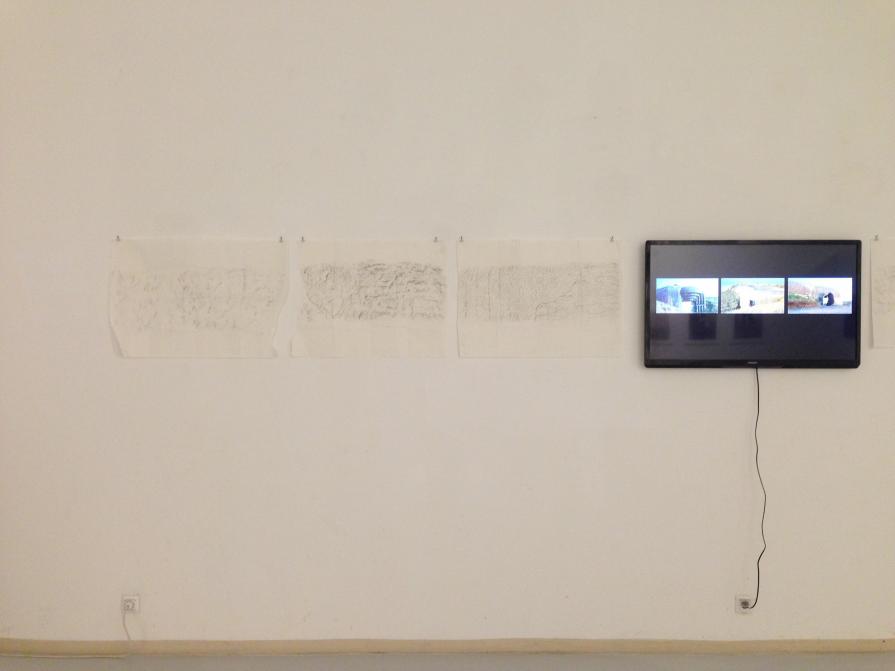
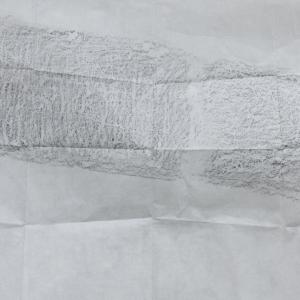
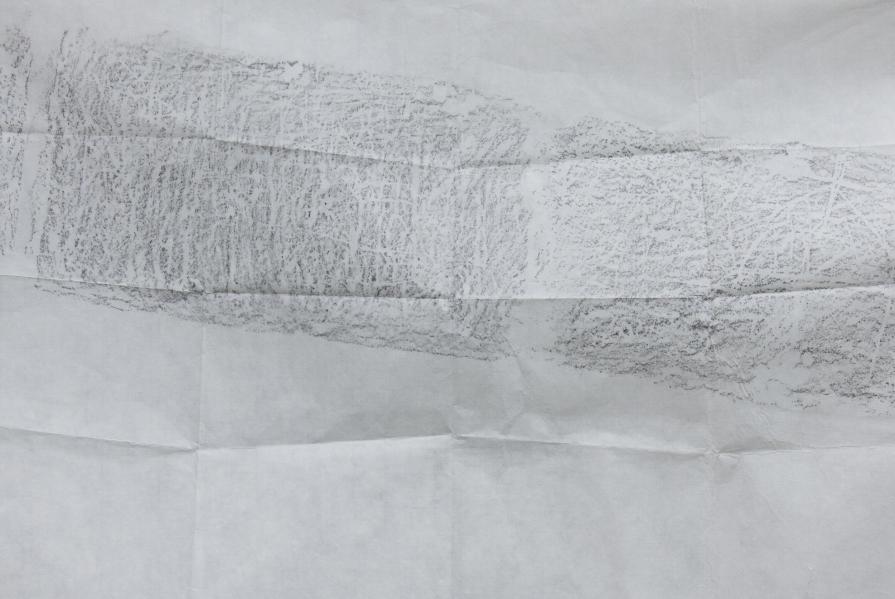
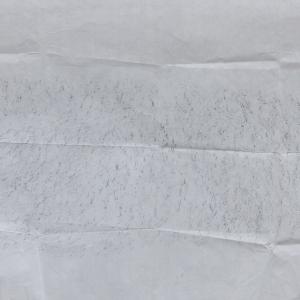
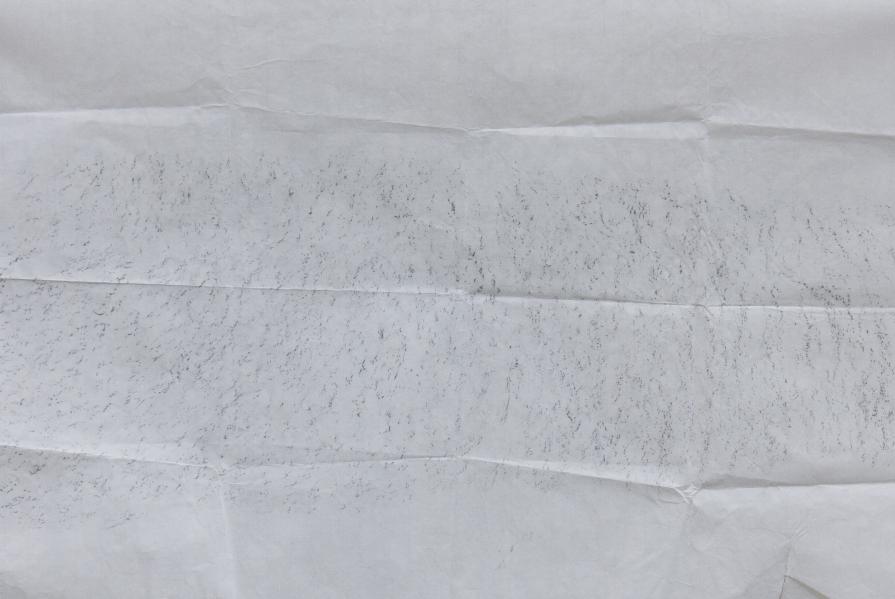






















Commenti 1
Inserisci commento